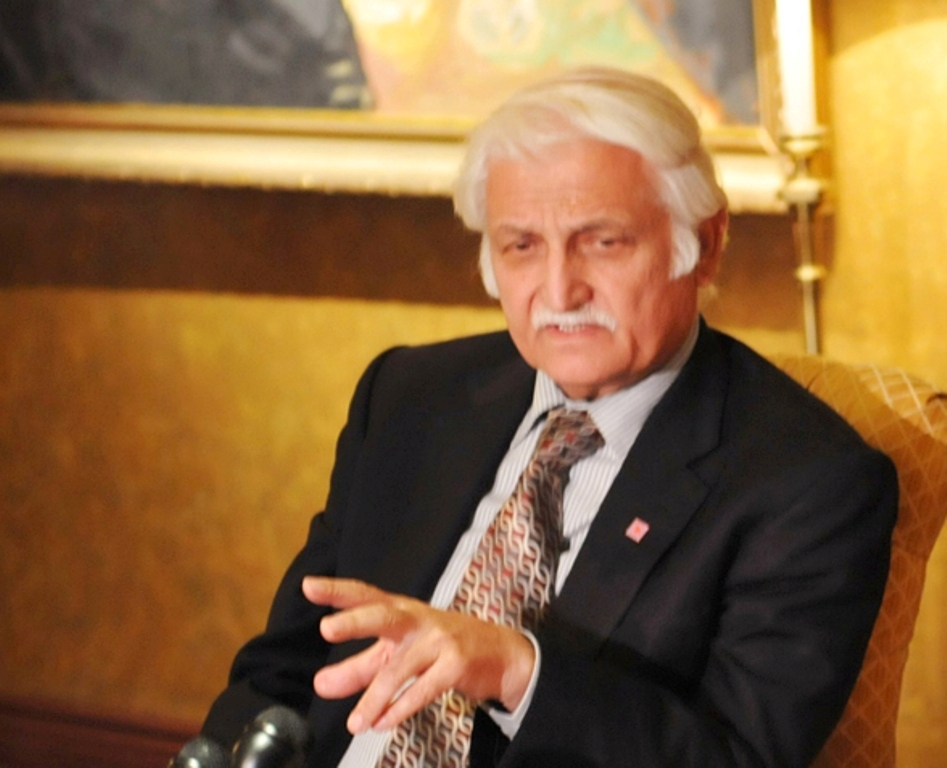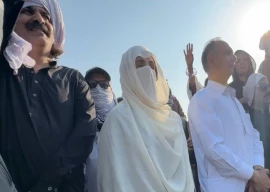
Before the Protection of Pakistan Ordinance (PPO) bill is moved in the upper house of parliament, cracks are already visible in the opposition as the Pakistan Peoples Party (PPP) opposes the idea of moving the court against the contentious legislation.
The PPP – the largest party in the 103-member Senate – issued a statement on Wednesday stating that it opposed the bill in its current form but it didn’t favour challenging it in a court of law.
“The PPP is also opposed to moving the court at this stage as it is within the domain of parliament to debate, modify or reject a [proposed] law. It is unwise to take a parliamentary battle to other forums and invite their interference in matters that fall within the domain of parliament alone,” PPP spokesman Senator Farhatullah Babar said in a statement.
He said the PPP resolutely opposed the PPO but disapproved the way to counter it. “The Pakistan Protection Ordinance is not meant to protect the country against militants rather it gives the security agencies a licence to continue kidnapping people and dumping their bodies.
The Pakistan Tehreek-e-Insaf (PTI) is on the forefront in opposing the law, which was promulgated as a presidential decree and gives unbridled powers to the security agencies. The party has announced to challenge it in the court. Many believe the law infringes on fundamental rights guaranteed in the Constitution.
The government succeeded in passing the bill from the National Assembly, thanks to a comfortable majority it enjoys in the lower house. However, the real test of the government will begin when it tables the bill in the Senate, where the opposition has an overwhelming majority as far as the number game is concerned.
Already the government has made one extension to the ordinance which will expire in June. If not passed by both houses, the ordinance will expire at the end of its second and last extension period.
The Senate will begin its new session – first of its 12th parliamentary year from April 14 and the government is likely to table the bill in the house during this session. The PTI has no presence in the upper house of parliament.
If Senate rejects the bill
Under the rules if a piece of legislation is cleared by the lower house and rejected by the upper house, the Senate has to give reasons for its rejection. The bill will be referred back to the National Assembly, which will have either to rectify the bill by amending the contentious clauses and re-pass it, or it will call a joint session of the two houses, where the head count is done on combined strength.
With some seats vacant in the 342-member house, the ruling PML-N has 190 members in it and 16 in the Senate. Thus it can have a maximum combined strength of 206 members of its own in the two houses. It will still need backing of other parties to secure simple majority-over 50% votes to get the law passed in a joint session. Currently, the NA has 339 members and the Senate has 103 members.
Published in The Express Tribune, April 10th, 2014.


1727177459-0/BeFunky-collage-(6)1727177459-0-165x106.webp)


1732697578-0/Untitled-design-(5)1732697578-0-270x192.webp)











COMMENTS
Comments are moderated and generally will be posted if they are on-topic and not abusive.
For more information, please see our Comments FAQ